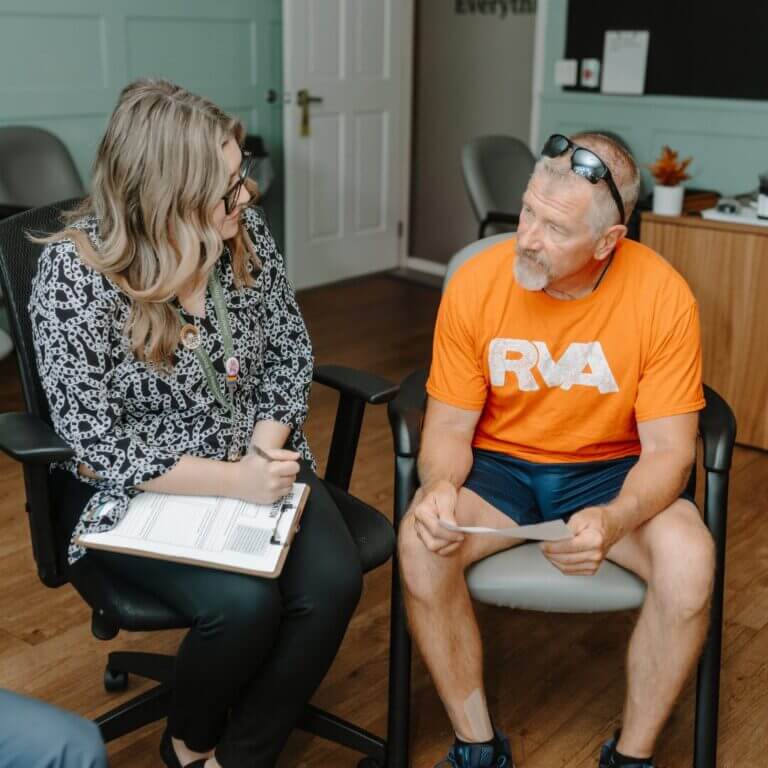Once someone has reached a crossroads in their life and made the noble decision to seek help for a substance use disorder, there are some decisions to be made. Recovery programs offer various levels of care so deciding which is appropriate is largely determined by the severity of the substance use problem. Treatment is available in two basic formats, the outpatient program and the inpatient, or residential, program.
An assessment of the individual’s substance use history, mental health history, and physical health will provide the essential information needed for a clinical determination regarding level of care. This information is also helpful in designing an individualized treatment plan that addresses the unique features of the substance use disorder.
In many cases, the individual will first need to complete the withdrawal management process prior to starting the treatment program. These services are available either on site as part of an inpatient program, or are provided in a dedicated withdrawal management facility. Once the individual has successfully completed this initial step and become stabilized they will be ready to begin the active treatment portion of the recovery process.
What is Outpatient Treatment?
Outpatient treatment is best suited for someone with an emerging or mild substance use disorder, as it does not provide the level of support or supervision that an inpatient program does. Outpatient programs, however, do offer more flexibility, as the individual will reside at home during treatment. This allows the individual the ability to continue working to some extent while receiving treatment. Outpatient services are available in three levels of care:
Basic Outpatient Therapy. Outpatient therapy is available in individual and/or group formats and provides therapeutic support to someone with a mild substance use issue. Outpatient therapy is often included in continuing care planning for individuals who have completed a primary treatment program as well.
Intensive Outpatient Program (IOP). The IOP involves about 9 hours per week of treatment programming, including individual and group therapy, substance use education classes, relapse prevention planning, holistic activities, and 12-step meetings.
Partial Hospitalization Program (PHP). The PHP offers the most intensive outpatient schedule, with up to 30 hours per week of treatment programming. This will involve the same basic treatment elements at the IOP but with more hours of participation required.
What is Inpatient Treatment?
An inpatient treatment program offers 24/7 monitoring and support with housing provided on site, making inpatient treatment a better choice for individuals with moderate to severe substance use disorders. The length of stay is determined by the duration and severity of the substance use disorder, with programs generally ranging from 1-6 months. The inpatient venue provides a supportive respite from daily life, allowing the individual to focus entirely on recovery efforts.
The inpatient programs offer a diverse mix of treatment protocols, which work in an integrated approach. These treatment elements assist the individual in overcoming former behaviors and habits while learning how to change disordered thought and behavior patterns. To accomplish this, the program will offer a full schedule of daily therapy sessions, classes, group sessions, dual diagnosis treatment, family-focused therapy, holistic and experiential activities, nutrition and exercise, and 12-step recovery methods. In addition, some individuals may benefit from medication-supported recovery (MSR) to further improve treatment outcomes.
What is Continuing Care?
Regardless of whether someone has completed an outpatient program or an inpatient program, having a defined continuing care plan in place is essential. The treatment program helps prepare the individual for life in recovery, but the continuing care piece of the process helps to support these efforts in daily life. Continuing care activities might include transitional sober living housing, supportive medication (MSR), ongoing outpatient psychotherapy and support groups, and active participation in a local 12-step or SMART Recovery program.
Determining whether an outpatient or inpatient treatment program will best serve someone’s needs might feel a little overwhelming. Fortunately, the input of experienced recovery experts will help guide the individual toward the best treatment option for them.
Ashley Addiction Treatment, formerly Father Martin’s Ashley, is a nationally recognized nonprofit leader in integrated, evidence-based treatment for substance use disorders and is accredited by The Joint Commission. We offer both inpatient and outpatient programs, holistic addiction treatment, drug detox, relapse prevention plans, family wellness programs and a variety of other services tailored to each patient’s needs. Our driving principle — “everything for recovery” — reinforces our mission to heal each individual with respect and dignity, and reflects on our ongoing commitment to meet new challenges. For information about our comprehensive programs, please call (866) 313-6307.




